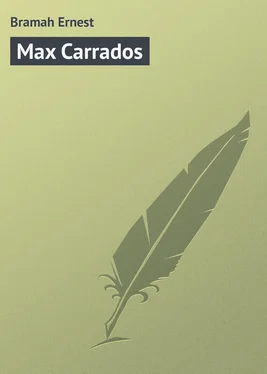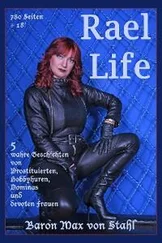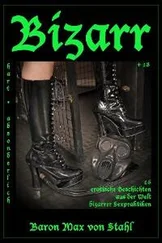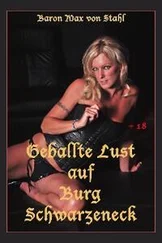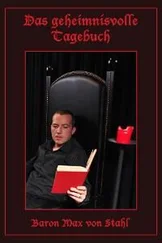Ernest Bramah - Max Carrados
Здесь есть возможность читать онлайн «Ernest Bramah - Max Carrados» — ознакомительный отрывок электронной книги совершенно бесплатно, а после прочтения отрывка купить полную версию. В некоторых случаях можно слушать аудио, скачать через торрент в формате fb2 и присутствует краткое содержание. Жанр: Классический детектив, foreign_detective, foreign_prose, на английском языке. Описание произведения, (предисловие) а так же отзывы посетителей доступны на портале библиотеки ЛибКат.
- Название:Max Carrados
- Автор:
- Жанр:
- Год:неизвестен
- ISBN:нет данных
- Рейтинг книги:4 / 5. Голосов: 1
-
Избранное:Добавить в избранное
- Отзывы:
-
Ваша оценка:
- 80
- 1
- 2
- 3
- 4
- 5
Max Carrados: краткое содержание, описание и аннотация
Предлагаем к чтению аннотацию, описание, краткое содержание или предисловие (зависит от того, что написал сам автор книги «Max Carrados»). Если вы не нашли необходимую информацию о книге — напишите в комментариях, мы постараемся отыскать её.
Max Carrados — читать онлайн ознакомительный отрывок
Ниже представлен текст книги, разбитый по страницам. Система сохранения места последней прочитанной страницы, позволяет с удобством читать онлайн бесплатно книгу «Max Carrados», без необходимости каждый раз заново искать на чём Вы остановились. Поставьте закладку, и сможете в любой момент перейти на страницу, на которой закончили чтение.
Интервал:
Закладка:
“I think,” remarked Mr Carlyle, critically examining the loose threads on his left boot, “that the apology on that head would be more appropriate from me.”
THE KNIGHT’S CROSS SIGNAL PROBLEM
“Louis,” exclaimed Mr Carrados, with the air of genial gaiety that Carlyle had found so incongruous to his conception of a blind man, “you have a mystery somewhere about you! I know it by your step.”
Nearly a month had passed since the incident of the false Dionysius had led to the two men meeting. It was now December. Whatever Mr Carlyle’s step might indicate to the inner eye it betokened to the casual observer the manner of a crisp, alert, self-possessed man of business. Carlyle, in truth, betrayed nothing of the pessimism and despondency that had marked him on the earlier occasion.
“You have only yourself to thank that it is a very poor one,” he retorted. “If you hadn’t held me to a hasty promise – ”
“To give me an option on the next case that baffled you, no matter what it was – ”
“Just so. The consequence is that you get a very unsatisfactory affair that has no special interest to an amateur and is only baffling because it is – well – ”
“Well, baffling?”
“Exactly, Max. Your would-be jest has discovered the proverbial truth. I need hardly tell you that it is only the insoluble that is finally baffling and this is very probably insoluble. You remember the awful smash on the Central and Suburban at Knight’s Cross Station a few weeks ago?”
“Yes,” replied Carrados, with interest. “I read the whole ghastly details at the time.”
“You read?” exclaimed his friend suspiciously.
“I still use the familiar phrases,” explained Carrados, with a smile. “As a matter of fact, my secretary reads to me. I mark what I want to hear and when he comes at ten o’clock we clear off the morning papers in no time.”
“And how do you know what to mark?” demanded Mr Carlyle cunningly.
Carrados’s right hand, lying idly on the table, moved to a newspaper near. He ran his finger along a column heading, his eyes still turned towards his visitor.
“‘The Money Market. Continued from page 2. British Railways,’” he announced.
“Extraordinary,” murmured Carlyle.
“Not very,” said Carrados. “If someone dipped a stick in treacle and wrote ‘Rats’ across a marble slab you would probably be able to distinguish what was there, blindfold.”
“Probably,” admitted Mr Carlyle. “At all events we will not test the experiment.”
“The difference to you of treacle on a marble background is scarcely greater than that of printers’ ink on newspaper to me. But anything smaller than pica I do not read with comfort, and below long primer I cannot read at all. Hence the secretary. Now the accident, Louis.”
“The accident: well, you remember all about that. An ordinary Central and Suburban passenger train, non-stop at Knight’s Cross, ran past the signal and crashed into a crowded electric train that was just beginning to move out. It was like sending a garden roller down a row of handlights. Two carriages of the electric train were flattened out of existence; the next two were broken up. For the first time on an English railway there was a good stand-up smash between a heavy steam-engine and a train of light cars, and it was ‘bad for the coo.’”
“Twenty-seven killed, forty something injured, eight died since,” commented Carrados.
“That was bad for the Co.,” said Carlyle. “Well, the main fact was plain enough. The heavy train was in the wrong. But was the engine-driver responsible? He claimed, and he claimed vehemently from the first and he never varied one iota, that he had a ‘clear’ signal – that is to say, the green light, it being dark. The signalman concerned was equally dogged that he never pulled off the signal – that it was at ‘danger’ when the accident happened and that it had been for five minutes before. Obviously, they could not both be right.”
“Why, Louis?” asked Mr Carrados smoothly.
“The signal must either have been up or down – red or green.”
“Did you ever notice the signals on the Great Northern Railway, Louis?”
“Not particularly. Why?”
“One winterly day, about the year when you and I were concerned in being born, the engine-driver of a Scotch express received the ‘clear’ from a signal near a little Huntingdon station called Abbots Ripton. He went on and crashed into a goods train and into the thick of the smash a down express mowed its way. Thirteen killed and the usual tale of injured. He was positive that the signal gave him a ‘clear’; the signalman was equally confident that he had never pulled it off the ‘danger.’ Both were right, and yet the signal was in working order. As I said, it was a winterly day; it had been snowing hard and the snow froze and accumulated on the upper edge of the signal arm until its weight bore it down. That is a fact that no fiction writer dare have invented, but to this day every signal on the Great Northern pivots from the centre of the arm instead of from the end, in memory of that snowstorm.”
“That came out at the inquest, I presume?” said Mr Carlyle. “We have had the Board of Trade inquiry and the inquest here and no explanation is forthcoming. Everything was in perfect order. It rests between the word of the signalman and the word of the engine-driver – not a jot of direct evidence either way. Which is right?”
“That is what you are going to find out, Louis?” suggested Carrados.
“It is what I am being paid for finding out,” admitted Mr Carlyle frankly. “But so far we are just where the inquest left it, and, between ourselves, I candidly can’t see an inch in front of my face in the matter.”
“Nor can I,” said the blind man, with a rather wry smile. “Never mind. The engine-driver is your client, of course?”
“Yes,” admitted Carlyle. “But how the deuce did you know?”
“Let us say that your sympathies are enlisted on his behalf. The jury were inclined to exonerate the signalman, weren’t they? What has the company done with your man?”
“Both are suspended. Hutchins, the driver, hears that he may probably be given charge of a lavatory at one of the stations. He is a decent, bluff, short-spoken old chap, with his heart in his work. Just now you’ll find him at his worst – bitter and suspicious. The thought of swabbing down a lavatory and taking pennies all day is poisoning him.”
“Naturally. Well, there we have honest Hutchins: taciturn, a little touchy perhaps, grown grey in the service of the company, and manifesting quite a bulldog-like devotion to his favourite 538.”
“Why, that actually was the number of his engine – how do you know it?” demanded Carlyle sharply.
“It was mentioned two or three times at the inquest, Louis,” replied Carrados mildly.
“And you remembered – with no reason to?”
“You can generally trust a blind man’s memory, especially if he has taken the trouble to develop it.”
“Then you will remember that Hutchins did not make a very good impression at the time. He was surly and irritable under the ordeal. I want you to see the case from all sides.”
“He called the signalman – Mead – a ‘lying young dog,’ across the room, I believe. Now, Mead, what is he like? You have seen him, of course?”
“Yes. He does not impress me favourably. He is glib, ingratiating, and distinctly ‘greasy.’ He has a ready answer for everything almost before the question is out of your mouth. He has thought of everything.”
“And now you are going to tell me something, Louis,” said Carrados encouragingly.
Mr Carlyle laughed a little to cover an involuntary movement of surprise.
Читать дальшеИнтервал:
Закладка:
Похожие книги на «Max Carrados»
Представляем Вашему вниманию похожие книги на «Max Carrados» списком для выбора. Мы отобрали схожую по названию и смыслу литературу в надежде предоставить читателям больше вариантов отыскать новые, интересные, ещё непрочитанные произведения.
Обсуждение, отзывы о книге «Max Carrados» и просто собственные мнения читателей. Оставьте ваши комментарии, напишите, что Вы думаете о произведении, его смысле или главных героях. Укажите что конкретно понравилось, а что нет, и почему Вы так считаете.
